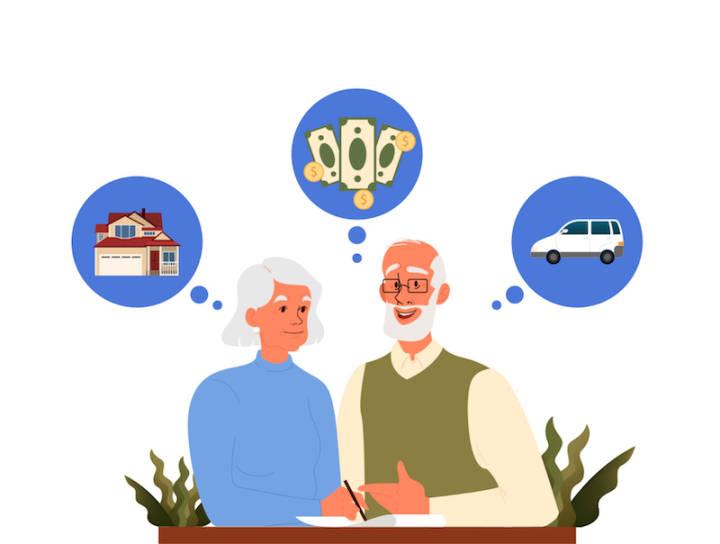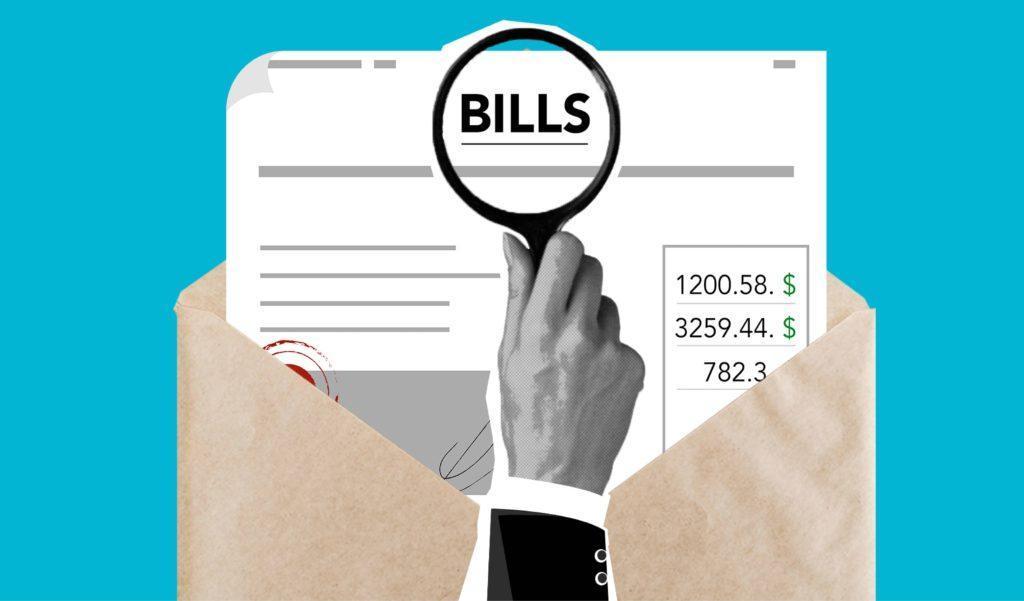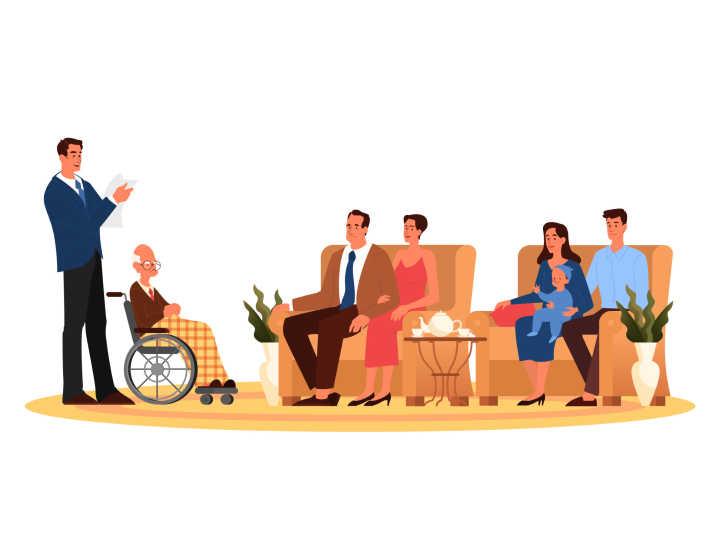What Is a Will?
One of the most effective things a person can do for his or her family and heirs is to create a Last Will. A Living Will allows the testator’s intentions to be legally carried out after his or her death. In addition, a Living Will acts as a legal proxy for someone who is unable to speak for themselves due to a life-threatening illness or trauma.
A will is a legal document that you prepare to deal with your assets and minor children’s custody after you die. The effect of a will is delayed until the individual dies. A Will should be made by any adult who has children or owns the property.

Who Should Create a Will?
No matter how insignificant, anyone with any assets should make a will. This includes elderly people who are on Medicaid despite having very few assets and income. Intestacy refers to death without a will. The assets of an intestate person are dispersed according to state legislation by the courts. In most cases, they will be divided among surviving spouses or children. But only after the state has seized a percentage of the money for administrative purposes. As a result, making a will is advantageous solely to reduce the portion of one’s assets that the courts collect in costs.
The sooner an elderly person draughts a will, the better. While anyone can write a will at any age, the will must be legitimate. Basic competency is described as knowing what you’re signing and what would happen to your belongings if you died without a will. What constitutes “sound mind and body” can be a source of much debate. It may be helpful to have a doctor’s statement at the time of the will writing for elderly people who are losing their cognitive abilities.
Components of a Will
A valid and proper will has different components. What Are the Key parts of a Will? Here is the complete list.
Preamble
A will’s preamble clause is usually the opening part of the document. It usually contains the testator’s name and a statement that the final will and testament is being written.
Prior will revocation
The revocation of prior wills declares that all previous wills are being canceled and is a regular feature of most wills. A last will has the effect of withdrawing any provisions of a prior unrevoked will that are irreconcilable with the later will under the laws of most states. Any earlier will provision that is not in conflict with the last will can be implemented. Specific to the difficulties of determining which sections of which will govern a given situation, it is clearly bad practice to draught a new will that does not cancel all former wills.
Family statement
Most wills list the testator’s family members, such as a spouse, children, and the offspring of any deceased children.
Although identification is not essential, a statement of family members can be helpful in establishing capacity if the testator’s capacity is ever called into question. That is especially if a drafting attorney has contemporaneous notes from the testator identifying the testator’s family.
Specific bequests
A specific bequest is a transfer of a particular object to a specific individual. Any type of property, including real estate, jewels, automobiles, and stock shares, might be given in this way.
General bequest
A generic bequest is a gift of money payable from the estate’s assets that do not specify the source of the funds. It is a monetary payment intended for a specific person.
Demonstrative bequest
A demonstrative bequest is a financial bequest made from a specific source of funds, such as a bank account.
Residuary bequest
A residuary bequest is made after all other forms of bequests have been distributed, creditors have been paid, and administrative expenses have been paid. A will commonly include a residuary bequest. The term “per stirpes” refers to when the offspring of a deceased parent step into their deceased parent’s shows for inheritance purposes.

Types of Will
There are various distinct sorts of Wills, all of which can be Probated after the testator passes away. Some of the most popular types of Wills are listed below.
1. Living wills
“Advance Healthcare Directives” is another name for a living will. It’s a legal document that outlines your end-of-life care wishes in the event that you are unable to communicate them. If you were seriously injured and rendered unconscious, for example, your living will would take effect.
You can indicate which medical procedures and medications you desire, as well as which ones you don’t want, and whether or not you wish to be an organ donor in a living will. This allows you to preserve control over your own healthcare and avoid burdening your loved ones with potentially painful or difficult decisions.
2. Simple wills
A simple last will and testament is a primary legal document. It specifies whom you wish to inherit your property and assets once you pass away. Don’t undervalue the power of a strong will! Despite its name, this will cover a lot of ground, and it’s sufficient for most people with simple estates.
3. Joint wills
One spouse creates joint wills to protect the partner’s financial security. This sort of will, unlike mirror wills, is a single document that the couple creates and signs together. The single will incorporate the wishes of both partners into one document. It cannot be modified without both partners’ consent. This means that if one of the partners dies, the surviving partner has no control over the provisions of the joint will or who inherits their assets.
4. Holographic wills
Despite their obtuse name, holographic wills are as simple as they come. This style of will is handwritten and signed, sometimes without the presence of witnesses. In order to be upheld in court, holographic wills must meet certain conditions, which vary by state. The executor, for example, may need to show that the deceased individual wanted the document to be used as a will. In addition, family members frequently question the authenticity of these wills due to the lack of witnesses.
5. Nuncupative wills
Wills that are spoken aloud are called nuncupative wills. A “deathbed will” or “oral will” is another name for this form of will. They frequently occur when the testator believes they will die soon and wishes to express their wishes before they do.
6. Mirror wills
Mirror wills are wills written by a married couple or domestic partners that are similar. Each partner gives their entire estate to the other in this sort of bequest. In addition, they all list the same people and organizations as secondary beneficiaries of their assets. This allows the couple to prioritize their financial security before passing the estate on to their heirs.
7. Pour-over wills
A living trust is used in conjunction with a pour-over will. They stipulate that any assets that aren’t listed in the trust after the will-maker dies shall be handed to the trust.
Importance of Will for Seniors
A will is useful for a variety of reasons. You leave critical decisions to a local court and your state’s laws if you die without a will. You won’t be able to pre-decide who gets your property and other belongings. Furthermore, not having a will may make it more difficult for your loved ones to deal with your estate when you pass away. Here are the top five reasons to write a will right now:
Less stress for your loved ones
The ability to expedite the court procedure is one of the most compelling reasons for having a will. In addition, you can designate who will oversee your property if you have a will, making things easier for your loved ones.
Determination of estate management
As previously said, one of the most important reasons to make a will is to decide who will manage your estate. You become a “testator” when you write a will, and you have the option of naming an “executor.” This is the individual in charge of completing all of your tasks.
Deciding the care for your minor children
You can pick a guardian for your minor children in your will if you’re a parent. If any one of you dies, the surviving parent receives typically exclusive legal custody. However, one of the most compelling reasons to have a will is if both parents pass away.
Less family disputes
There’s a solid reason to create a will if you have complex family dynamics. Your family will have to guess your final desires if you die without leaving a will. And they’re not always going to agree. This ambiguity can lead to misunderstandings and even fights that might last a lifetime. By eliminating the guessing, writing a will solves the problem.
What Does a Will Not Do?
People considering writing wills should be aware of what a will does not do. Here are five things a will won’t cover.
Leaving your funeral instructions
Wills are rarely read until days or weeks following a death. That’s too late to help people who need to make quick decisions concerning a body’s disposition and funeral or memorial ceremonies. So instead, you can make a separate document that talks about your wishes and give it to your executor when the time comes.
Reducing the estate taxes
If you plan to owe federal estate taxes, you should take steps immediately to minimize your tax liability. A will isn’t going to assist you in avoiding paying taxes. However, many types of trusts might help you lower or postpone your tax burden.
Avoiding probate
Property left in a will may be held in probate court for several months or even a year before being released to the beneficiaries.
Putting special conditions on gifts
What you can do in a will is also subject to a few legal restrictions. You can’t, for example, make a present conditional on the recipient’s marriage, divorce, or religious conversion. However, you might try to have an impact on minor issues.
Leaving money for an illegal purpose
This isn’t a common occurrence, but you can’t set aside funds for unlawful activities like encouraging youngsters to smoke.
Relevant Parties in a Will
There are several parties involved when you create a trust to protect, grow, and distribute your assets. Each of these parties has distinct duties to play and responsibilities to fulfill. To make a trust work, every one of the parties involved must do their share. So, who are the people involved in a trust?
Grantor
Other names of a grantor are Trustor, Settlor, or Donor. The individual, couple, or corporation who owns the assets to be placed in the trust is referred to by this title. Antiques, art, investments, real estate, savings accounts, vehicles, and other assets can all be placed in a trust. The Grantor is required by law to name a specific individual who will benefit from the trust’s assets.
Beneficiary
The person, people, or organizations who profit from the trust’s assets are known as beneficiaries. It is primarily for his/her/their benefit that the trust exists. It is handled for that purpose by the trustee, who is held to a higher standard of care known as “fiduciary duty.”
Trustee
These are the people in charge of the trust’s assets. Depending on the type of trust, they can have a lot of control over what happens with the assets. Trustees have a fiduciary responsibility to manage the estate’s assets for the beneficiaries benefit. And if they don’t, they risk being held personally accountable.
Successor trustee
While the Grantor is still living, he or she may name himself or herself as Trustee for several trusts. Alternate or Successor Trustees are the Trustees who take over after the original Trustees pass away.
Trust protector
The sole purpose of a Trust Protector is to keep the trust safe. Originally, trust protectors were employed to avoid paying taxes. As a result, they must be meticulously constructed in order to traverse a constantly shifting and unpredictable environment involving taxes, law, family dynamics, and market changes.

Costs of Will
The most expensive but the most thorough option is to write your will with the help of an estate lawyer. Working with a lawyer might cost anything from $300 to $400 for a simple will to $1,100 to $1,400 for more complex wills. Additional legal advice and paperwork relating to estate preparation, such as designating a representative and power of attorney, may be charged separately, bringing the total cost closer to $1,600. This might be billed as a one-time cost or on an hourly basis.
Using a provider to create a will online makes the do-it-yourself procedure faster and easier to grasp. It costs a fraction of what a lawyer would. These services are straightforward and reasonable. One of their most significant advantages over a will kit is that you can get expert help when you need it, and they’re easy to amend. You may be charged between $100 to $150 for preparing such wills.
How to Change and Amend a Will
It is simple to alter your will. You can either replace the existing will with a new one or add to it with a codicil, a type of amendment. As codicils are so important and have the capacity to amend the entire will, two witnesses are typically required to sign them, just as they were when the original will was written. However, some jurisdictions have eased the legal restrictions on codicils, allowing them to be notarized by a public notary.
Ideally, you should make alterations when you are in sound health and mind. This reduces the risk of your wishes being successfully challenged and prevents hasty or emotionally charged judgments.
A reasonable rule of thumb is to re-evaluate your will every two or three years, as well as at significant life events. Weddings, divorces, and the birth of a child are examples of such events. When your children reach adulthood, they are unlikely to require guardians listed in a will.
Will Preparation Checklist
There is no direct solution for what should be included in your Will or how your assets should be distributed. All relevant questions can only be answered after chatting with you and knowing about your situation. In summary, before your Will can be created and executed, you will need to consider the following topics and decide on answers:
1. List all your assets
Your estate is a collection of all your assets. Thus, make a list of your property and assets to start creating your will. You don’t have to enlist every item in your home; you can leave low-value goods to your residuary estate as personal property.
2. Debit and taxes accounts
You might wish to do some accounting and think about what debts you have and when you might be able to pay them off as part of your will preparation. You don’t have to mention your debts in your will; just keep in mind that any estate debts must be paid or addressed before assets can be distributed to your heirs. It’s essential to consider the possibility that having debt will diminish the amount of inheritance you can leave to your loved ones.
3. Select your preferred beneficiaries
The most crucial element of your will is naming beneficiaries for your possessions. A family member or acquaintance, a corporation, or even a charity can be a beneficiary. You have the option of naming a single beneficiary for everything or numerous beneficiaries. If your primary beneficiary is unable to inherit for any reason, you may want to consider naming a contingent beneficiary in your will. This individual inherits an asset if your primary beneficiary is unable to inherit.
4. Appoint an executor
Someone will have to carry out the terms of your will once you’ve passed away. The executor is the person in charge of managing your estate and finally transferring the assets to the correct persons. Depending on the intricacy of your estate, the executor has several responsibilities that may take some time to complete. Choose someone you can trust and who is capable of doing the job. Many people pick a spouse or family member, but others may pick someone unrelated, such as a lawyer.
5. Name a guardian for minor children
If you have minor children, you will need to pick someone to look after them after you pass away. If you don’t name a guardian, the court will make the decision, and they may not choose the person you want. In addition, minor children who receive assets in your state may not be entitled to use them until they attain the age of majority.
6. Gather all the witnesses
A will is frequently required to be signed by two witnesses. Many states often suggest a witness to a will as someone not designated as a beneficiary. Choosing whom you want to act as witnesses while preparing your will would save you time later when it comes to self-proving and notarizing it.
Conclusion
You’ve worked hard all your life and deserve to have your assets distributed according to your wishes upon your death; making sure that your family and loved ones are provided for. Taking a few steps now will give you and your family peace of mind you’re entitled to.
While you’re reviewing your assets, ask yourself if you really need to still be maintaining a house and yard. Retirement is the perfect time to consider downsizing. If you need help in making this important decision, visit www.boomershub.com. We offer senior living solutions to meet every need. Visit our site today.
FAQs
How does a will work after death?
If the deceased left a will, a “probate” court may or may not be required to validate it. If a court finds a will to be valid, it also grants approval to a trustee to carry out the deceased person’s desires. This trustee is usually cited in wills.
How can I write a simple will without a lawyer?
Writing a will without a lawyer is simpler than you can imagine. You can follow different online step-by-step guides and our checklist to prepare will without attorneys.
Does a will have to be filed in court?
No, it is not a requirement to file a will with the court. Many people simply file the papers safely while they are still alive.
What’s the difference between estate planning and a will?
A will is a part of estate planning. Also, a will is merely one of the legal tools for smoothly transferring assets from one generation to the next.
Does a will need to be recorded?
While a person is still alive, a will does not need to be “recorded.” The only time a will needs to be “recorded” is after the death of the will’s creator.
Can I make my own will?
Yes, you certainly can write your own will. However, you must ensure that the will you prepare is valid and fills out all the components mentioned in this article.
What is a holographic will?
A holographic will simply a hand-written will that is signed by you in the end. Another name of a holographic will is oleographic testament.
Why would a holographic will be disallowed?
One of the major reasons why holographic wills might be disallowed in court is when the judge finds that the testamentary was incapable of drafting the will. In addition, if the document is only a draft that doesn’t include all the wishes of the deceased, it can become invalid.
How much does it cost to prepare a will?
If you are taking lawyer support to prepare a will, the costs will be higher. It can range between $300 to $1500 depending on the complexity of your will. You can also opt for preparing will by yourself online with only $100 to $150 in total.
What can I put in a will?
You will need to include your detail personal information and asset information in a will. In addition, you will need to mention your wishes in spreading the assets.
What do I need for a will?
You will need the essential documents, including birth, death, marriage, and divorce certificates. Also, you should have deeds and mortgages, bank account numbers, investment portfolio account numbers, insurance policy numbers, funeral plans, and burial lot information.
What happens if you don’t leave a will?
If you leave no will, the probate court will use local “intestate succession” laws to determine who will inherit your assets. In most cases, your surviving spouse or domestic partner comes first, followed by your children, parents, siblings, and other family members.
What’s the difference between a will and a living trust?
Trusts are legal structures that preserve assets while also directing their use and disposition in conformity with the wishes of their creators. On the other hand, wills take effect only after the creators have died.

